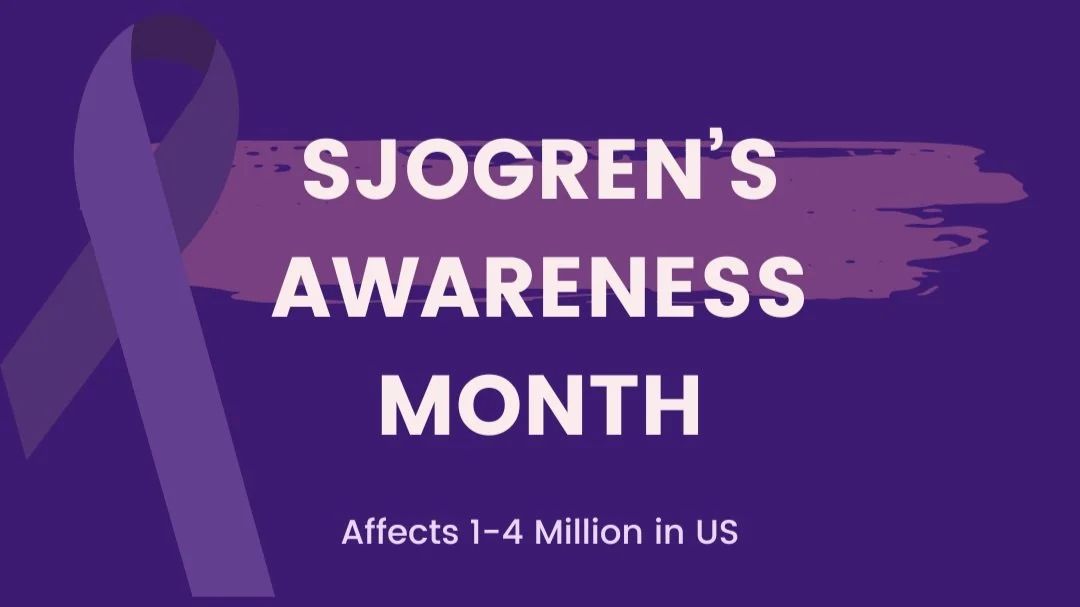Getting a diagnosis during COVID
A nagging cough and GI symptoms mask a serious systemic disease?
Therese first felt something was wrong in March of 2020. She saw her primary care (nurse practitioner) because she was sick with viral infections from October 2019 to February 2020. She initially had a dry, nagging cough that lingered for months and felt like something was off with her body.
As a precaution, she was tested for Covid but tested negative. Her nurse practitioner agreed that something could be wrong with her immune system and sent her in for bloodwork. After ruling out low Vitamin D levels, Therese insisted on more extensive testing. Because specialists were not seeing patients in the midst of the pandemic, her nurse practitioner remotely worked with a rheumatologist and she was sent for more extensive rheumatology blood work panels. It took two repeated panels to figure out that the diagnosis was leading toward an autoimmune disease. As a result of positive Sjogren’s antibodies found in her blood work, she was formally diagnosed with Sjogren’s disease in May 2020, two days before her 48th birthday. Sjogren’s is a complex, systemic autoimmune disease that affects the entire body.
Trying to see a physician during Covid
Her first major symptoms were GI-related and her nurse practitioner prescribed her medication because he suspected GERD due to her dry cough, hoarse voice, and difficulty swallowing. Therese was then referred to see a rheumatologist. It took her a while to schedule an appointment as many rheumatology offices were closed or were not taking on new patients during Covid. Moreover, her first rheumatologist visit was via telemed and Therese did not have a positive experience with the doctor, who was rude and dismissive. It took her another year to get a second opinion and find a new rheumatologist in 2021.
Therese recalled struggling to actually be physically seen by doctors during the beginning of the pandemic: “I could only be seen by primary care and the rheumatologist through telemed appointments since doctors weren’t seeing patients in the office. I was desperate to be actually physically examined by a doctor so my only choice was to be admitted to the ER when my symptoms became severe.” It took Therese three trips to the ER, including a trip by ambulance due to heart attack-like symptoms, for her symptoms to be taken seriously. After her third trip to the ER, Therese was able to get an urgent referral for an emergency endoscopy. As a result, the gastroenterologist diagnosed her with severe GERD and gastritis–common GI symptoms associated with Sjogren’s. She also got an urgent referral to see an ENT, who specialized in throat issues. The ENT ruled out structural throat issues (tumors and lesions) and then referred her for a modified barium swallow study to rule out throat dysfunction (which included a long wait time due to the pandemic).
Looking back over the years, Therese recalled that she had experienced dry eyes for at least 10 years but none of her optometrists ever mentioned Sjogren’s (symptoms also include dry eyes and dry mouth) and was told the dryness was due to contacts or allergies. Doctors over the years dismissed many of her symptoms such as crashing fatigue, flu-like symptoms, and red-hot face flushes as menopause-related. She was also suffering from other symptoms such as dizziness, unable to sweat/overheating easily, chronic sinusitis, and heart palpitations at the time, which prompted more visits to the ENT and cardiologist. Then, there was leg muscle weakness and feelings of numbness and pins and needles in her legs and throughout her body. She was eventually referred to a neurologist (she had to wait a year due to the pandemic), who performed nerve and muscle testing and recommended spinal MRIs, from which she received a diagnosis of herniated and bulging discs and severe spinal stenosis. Everything seemed to be going wrong with her body at the same time.
Advocating for herself
From 2020 to 2021, through 50 appointments and half a dozen specialists, Therese spent hours advocating for herself, with the assistance of her primary care, to get the referrals she needed to manage her Sjogren’s care. Though the disease is traditionally associated with dry eyes and dry mouth, recent research has made it clear that the disease can affect the entire body, including the sinus tract, gastroesophageal tract, musculoskeletal system, and the nervous system. While she also suffers from mild to moderate dry eyes and dry mouth, Therese believes that her GERD, chronic sinusitis, and joint and spinal issues are all related or made worse by her Sjogren’s disease.
Still, Therese feels very lucky that her primary care nurse practitioner believed in her and that her bloodwork results concluded she was positive for Sjogren's antibodies. Many without supportive physicians or positive blood tests can take much longer to get a diagnosis, if ever.
Managing a complex disease
After her ordeal, Therese realized how little doctors knew about Sjogren’s disease. Many are taught only a few sentences on the disease during medical school. Her best doctors are the ones who are empathetic, believe in her symptoms, understand the complexities of Sjogren’s, and who are willing to read about current research on the disease.
Today, Therese still experiences fatigue, brain fog, GERD/GI issues, mild to moderate dryness, chronic sinus issues, joint/muscle pain and stiffness, weakness, and back/spinal pain. She manages them with Plaquenil, acid blockers, electrical stimulation (TENS) for her back, over the counter eye drops, xylitol mouth and nasal sprays, saline irrigation rinses, humidifiers, and a healthy diet. Exercising and maintaining a healthy mindset are also a huge part of her disease and flare management. Therese is a big believer in the mind-body healing process and practices yoga, meditation, and Reiki to keep stress at bay.
She also believes that one of the most important things for coping with a chronic illness is mental health support. For those with chronic illnesses, the loss of control over our bodies can be a great source of anxiety. Therese has benefited tremendously from therapy and the support she received from internet and social media communities. She highly encourages others to seek out support groups and online platforms to connect with patients with similar illnesses.













